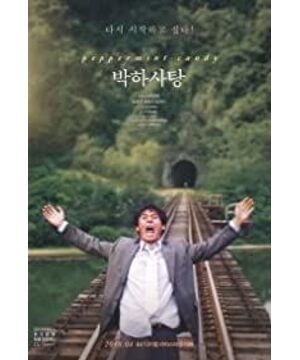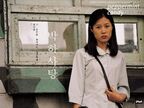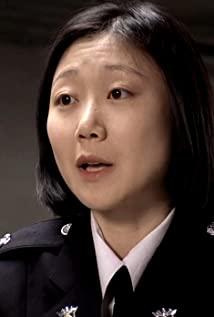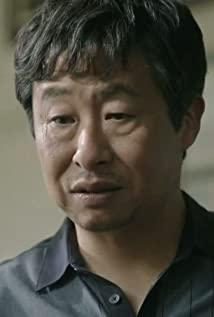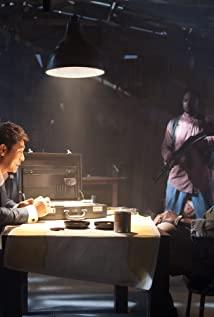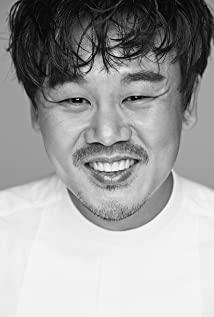4.5, it reveals that the starting point of tyranny may be a sensitive and innocent heart, and destroying this heart can cause great pain and scars.
The reverse-order narrative structure allows emotions to accumulate layer by layer. When the audience's inexplicable self-destruction, distress, and anger are about to reach a climax, the two finally meet in the penultimate act, revealing the truth: the protagonist In the Gwangju incident in South Korea, he inadvertently became a murderer and accidentally killed a female student who was as pure as his first love.
To say that the male protagonist is also a set of bad luck, he has caught up with the major events in South Korea in the last two decades of the last century: the Gwangju incident in 1980, the student movement in 1987, the great economic prosperity, the financial crisis (see the financial crisis There I was thinking instinctively, oh my gosh, should I clean up all my finances too).
But why him? Why did he have to die?
Before dying, the male protagonist shouted "I want to come again", I am afraid he also realized that his own choice and natural weak character also caused his tragedy (also ravaged by the times, the one who was beaten by him College students who extorted confessions now lead seemingly normal lives).
On the way, doesn't he have the opportunity to abandon the past and start over?
For example, three years ago, the deceased first love gave him the camera. Presumably, the first love still misses him until his death. I hope to tell him that he still has the opportunity to come back and become the photographer he wanted to be.
However, the first love did not know, at that time he had no choice but to sell the camera for some food. His first love made it impossible for him to die anymore (isn't the gun still on him?), but there was no way to live well. We didn't know what happened to him in the middle three years, but in the end he died.
For another example, after leaving the army, does he have to become a police officer, to self-destruct, and to challenge the social machine and state violence again by himself?
"Brother, let's pray."
"Is life really good?"
These words seemed to be mocking. I was afraid that he would never believe it after that incident. His belief in tragedy and his obsession with self-destruction would eventually lead him to an irreversible end.
But such people will also be involved in the war, which is the ruthlessness of fate and the times. Presumably what the director wanted to portray is such a pure tragedy.
Essentially, this is a tragic story of a purely sensitive and idealized broken individual.
When such people enter the society, they will be greatly impacted: the idealization is broken, the ideal self is gone, the society becomes vulgar, the difficulty of making a living, the interests of the world, and so on.
A few days ago, I turned to the words I wrote a few years ago, and I feel that it is very suitable to describe this shock period: a war with the society and with my heart.
Not to mention, the first big thing the protagonist faces when he enters the society is to become a weapon of the state machine and kill a pure and innocent person.
He couldn't bear it, and it shouldn't have been his responsibility.
(Although it's a bit far-fetched, in this sense, "Love Like a Bouquet" can be told in the same way, because they are all about idealism and the demise of young individuals in the face of a huge social machine However, the differences in the national conditions and history of Japan and South Korea, the background of the painful historical events in "Bo", and the story techniques are much more advanced, so there are still essential differences between the two.)
And this story is still a tragedy for men - their unique violent nature and the discipline of the dominant gender force them to join the confrontation, so that a kind of anger has been buried in their hearts for a long time. The more this kind of society "has the upper hand" by men, the deeper the anger from the men at the bottom, which will eventually turn into violence.
And the most outrageous thing that women do in this movie is to cheat or be a mistress. Like first love, it is always kind and pure.
The tragedy of broken women is "Fang Siqi", they can't hurt others, they can only kill themselves.
Having said that, half of the credit for this play lies in the actor's acting skills, which is so infectious. After I walked out of Xiaoxitian, I cried for a while before I recovered, because I admit that I am also such a sensitive individual. , so the pressure on the male protagonist's heart, through the starring's superb acting skills, is exactly on my heart.
I remember when they were celebrating the housewarming, the male protagonist was violent and on the verge of breaking out, he kicked the dog and argued with his wife, until the wife started praying and crying, this scene, until the end of the story regurgitated again, that kind of right The nameless fire of life and the unbelief in prayer are even more heavy.
At the end of the story, to think back to all the tragedies from the beginning, one finally asks: how could this be? What's up with this?
View more about Peppermint Candy reviews


